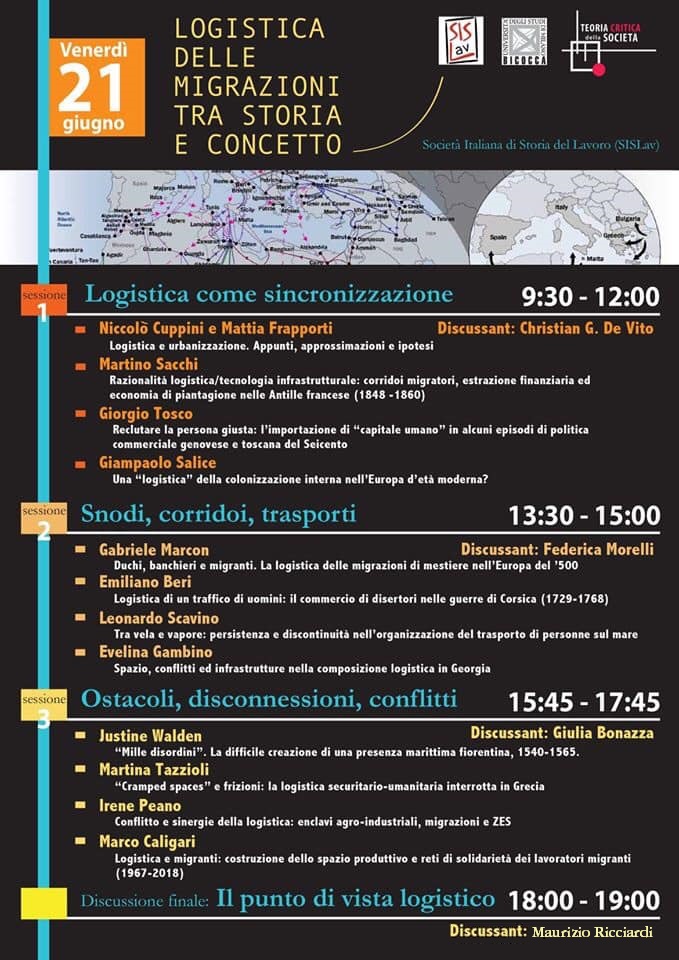Critical Theories of Digital Labour
Un seminario del progetto Horizon2020 PLUS (Platform Labour in Urban Spaces) con Luca Paltrinieri (Università di Rennes)
6 Giugno 2019
Sessione II: L’imprenditore di sé e nuove forme di resistenza nell’economia di piattaforma

Abstract del Seminario
In the Fordist model, the firm generally appears as a hierarchical private space in which instrumental activities are performed for the purpose of producing value through the use of paid labor, which permits the workers to access a certain form of protection and social integration. The economic model of digital platforms as a method of coordinating production seems to be symptomatic of a crisis of the model of the firm understood as a space separated from society and based on private ownership. This crisis appears, first, as an inadequacy of the instruments of theoretical economics to take the digital platform model into account, and subsequently as a crisis concerning ownership of the means of production. This appears more clearly in the claims of platform cooperativism, where the platform-firm no longer appears as a group of assets that are already owned, but as an institution in which ownership corresponds to governance. The deep substrate of struggles, which are self-designated as platform cooperativism, is in fact represented by a debate about the ownership of the firm and the ownership paradigm more generally: from exclusive ownership to inclusive ownership.



